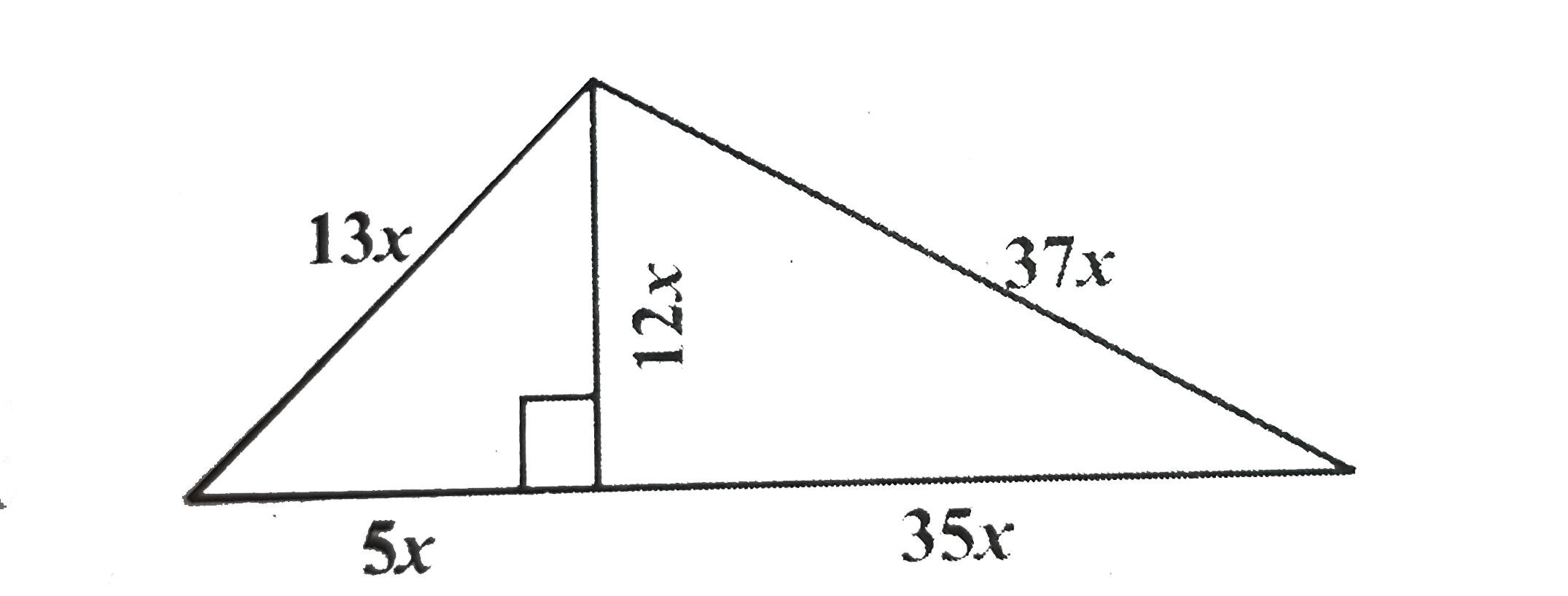If f(x)=g(x)q(x)+r(x), …………… must be added to f(x) to make f(x) completely divisible by g(x). Solution in Tamil
Step by step video & image solution for If f(x)=g(x) q(x)+r(x), …………… must be added to f(x) to make f(x) completely divisible by g(x). by Maths experts to help you in doubts & scoring excellent marks in Class 10 exams.
Topper's Solved these Questions
- BOOK - PREMIERS PUBLISHERSCHAPTER - ALGEBRAEXERCISE - SOLUTION TO ACTIVITIES7videos
ALGEBRA
- BOOK - PREMIERS PUBLISHERSCHAPTER - ALGEBRAEXERCISE - OTHER IMPORTANT OBJECTIVE TYPE QUESTIONS28videos
ALGEBRA
- BOOK - PREMIERS PUBLISHERSCHAPTER - ALGEBRAEXERCISE - SOLUTION THINKING CORNER (Say True or False:)1videos
ALGEBRA
- BOOK - PREMIERS PUBLISHERSCHAPTER - CO-ORDINATE GEOMETRY EXERCISE - Other Important Objective25videos
CO-ORDINATE GEOMETRY
Similar Questions
Find the ratio of the perimeter to the area of the given triangle.
 04:50View Solution
04:50View SolutionA linear equation in two variables represent a ………………. In xy plane.
02:20View SolutionFill up the empty box in each of the given expression so that the resulting quadratic polynomial becomes a perfect square.
(i) x2+14x+ …………….
(ii) x2−24x+ ……………..
(iii) (p)2+2qp+ ………………..04:28View SolutionThe area of the triangle formed by the points (0,0),(3,0) and (0,4) is :
02:45View SolutionLet f(x)andg(x) be two function having finite nonzero third-order derivatives fxandgx for all x∈R. If f(x)g(x)=1 for all x∈R, then prove that f/f′−g/g′=3(f/f−g/g).
02:19View Solutionf(x)=x^(x),x in(0,oo) and let g(x) be inverse of f(x), then g(x) 'must be
02:22View SolutionLet f(x) and g(x) be polynomials with real coefficients.If F(x)=f(x^(3))+xg(x^(3)) is divisible by x^(2)+x+1, then both f(x) and g(x) are divisible by
View SolutionIf f(x)=px+q and g(x)=rx+s and f[g(x)]=g[f(x)]hArr
02:15View SolutionIf (x−1) is a factor of polynomial f(x) but not of g(x) , then it must be a factor of (a)f(x)g(x) (b) −f (x)+ g(x) (c)f(x)−g(x) (d) {f(x)+g(x)}g(x)
if (x -1) is a factor of polynomial f(x) but not of g(x)
Then it must be a factor of multiplication of f(x) and g(x). i.e f(x)g(x)
.Option A is correct.03:17View Solutionमान लीजिए कि f,g:R→R क्रमश: f(x)=x+1,g(x)=2x−3 द्वारा परिभाषित है।
(f+g)(x),(f−g)(x) और (fg)(x) ज्ञात कीजिए।03:11View SolutionIf f:R→R and g:R→R are given by f(x)=|X| and g(x)=[x] for each x∈R then {x∈R:g(f(x))≤f(g(x))} is equal to
02:40View SolutionIf f(x)=g(x)q(x)+r(x), ……………. Must be subtracted to f(x) to make f(x) completely divisible by g(x).
03:38View Solutionf(x)=xx,x∈(0,∞) and let g(x) be inverse of f(x) , then g(x)' must be
06:08View SolutionIf (x−1) is a factor of polynomial f(x) but not of g(x) , then it must be a factor of (a)f(x)g(x) (b) −f (x)+ g(x) (c)f(x)−g(x) (d) {f(x)+g(x)}g(x)
00:52View SolutionIf f(x)=px+q and g(x)=rx+s and f[g(x)]=g[f(x)]<⇒
02:57View Solution

